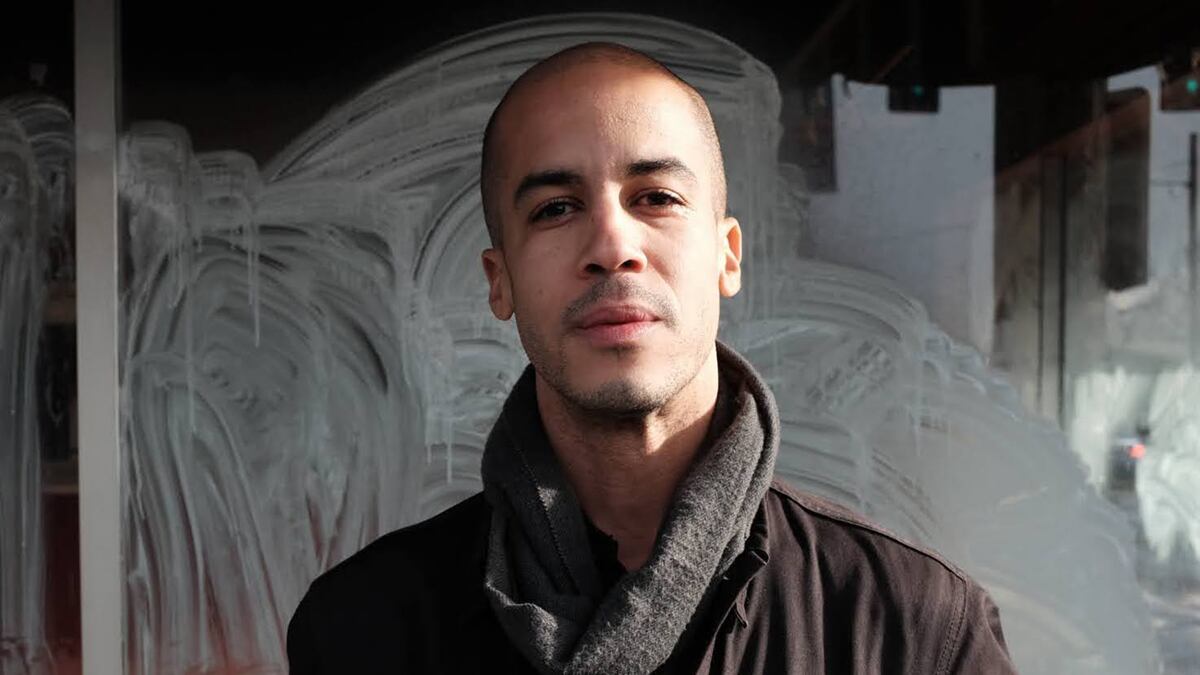When Nick Cave and the Bad Seeds released Murder Ballads, the band's ninth studio album, in 1996, they were ready for it to be dismissed or reviled by even their staunchest fans. Filled with descriptions of 15-year-old mass murderers, rapist gunslingers and numerous crimes of passion, the record was, as Cave told Rolling Stone, "designed to offend…where people just go, 'What the fuck is this load of crap?'"
Instead, Murder Ballads was a huge success, with one single—"Where the Wild Roses Grow," a haunting duet featuring pop goddess Kylie Minogue—scoring Song of the Year honors at Australia's ARIA Awards.
With the rich backstory of its creation and its various musical and literary inspirations, Murder Ballads was an ideal candidate for the 33 ⅓ book series, which takes a deep dive into the making of a single album—and with his passion for the history of folk and blues, local author (and occasional WW contributor) Santi Elijah Holley was the ideal person to write it.
Related: Nick Cave Finds Catharsis in Chaos at the Schnitz.
He talked to WW about digging into the source material and the recording of each song on this blood-soaked entry in an already grisly discography.
WW: Why did you want to write about this particular album?
Santi Elijah Holley: It was the first Nick Cave record that I ever purchased, back in 1999. I didn't know anything about it. I was immediately floored by it and I've listened to it ever since. I also suspected there was more to it, something deeper. The more I learned about what went into the recording of it, the more I wanted to investigate the stories behind the songs. There are so many stories within each song that it seemed perfect for this kind of project.
It is a very deeply researched book that spells out the songs and stories that Cave used as source material for his lyrics. How was it to do that legwork?
It's a lot of close reading of the lyrics. I picked up a number of books that compiled lots of English and Scottish folk ballads, and pored over those to trace the history of how they evolved over time. I was also poring over interviews with Cave from when the record was being made or after it was released, looking for clues about authors and songwriters. It also helped to be able to interview [Bad Seeds members] Mick Harvey and Jim Sclavunos. They helped explain what books Nick was reading and what songs he was listening to and pointing my research in those directions.
Cave had written plenty of songs about murderers and death by this point. Why did he decide to focus an entire album on that theme?
When they started out, they didn't have this idea of a whole record dedicated to murder songs. It really happened organically with a couple of songs. "O'Malley's Bar" and "Song of Joy" had this dark, violent theme. At some point, they just decided, "Why don't we do a whole record with just murder songs?" It was sort of a joke, but once they started doing it, they just kept going.
What are some of the more surprising things you learned from your interviews with Harvey and Sclavunos?
It was surprising that with "Stagger Lee," they were trying to emulate [hip-hop artists] the Geto Boys and Scarface. It's funny to think about a song that has evolved and been interpreted in so many ways growing out of this hip-hop beat. I was also surprised to learn about PJ Harvey's contribution. Nick wanted her to sing a whole song by herself, and she was the one that came up with singing "Henry Lee" as a duet, which is perfect. Stuff like that just showed how collaborative and fun and open and spontaneous the whole recording was.
The biggest shock for fans of the group was the appearance of Kylie Minogue on the album. What did you learn about how that came to pass?
I learned that Kylie was dating Michael Hutchence of INXS at the time and Nick was friends with Michael. He reached out to Michael first to get in touch with her. She had never heard of Nick Cave, didn't know anything about him. And now they're such close friends. Nick intentionally wrote the song with her in mind. He needed her on this.
I'm still surprised that "Stagger Lee," the filthiest, most grotesque song on Murder Ballads, is so beloved and has become a mainstay of the band's live shows. What do you make of that?
It's unfortunate because there are so many better songs on the record than that one. But I think it's the same reason "Stagger Lee," the ballad itself, has lasted so long and been interpreted so many times. We love these characters who are not guided by the same sort of ethical or moral rules that the rest of us follow. We've always celebrated those stories. Cave's version is so over the top that I think it's fun for people to lose themselves in this fantasy of depravity.
BUY IT: Order Murder Ballads at bloomsbury.com. $10.46.
